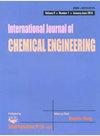Degradation of Metal Ions with Electricity Generation by Using Fruit Waste as an Organic Substrate in the Microbial Fuel Cell
IF 2.4
4区 工程技术
Q3 ENGINEERING, CHEMICAL
引用次数: 0
Abstract
A potential and developing green technology for producing renewable energy and treating wastewater is the microbial fuel cell (MFC). Despite several advancements, there are still several serious problems with this approach. In the present work, we addressed the problem of the organic substrate in MFC, which is necessary for the degradation of metal ions in conjunction with the production of energy. The utilization of fruit waste as a carbon source was strongly suggested in earlier research. Hence, the mango peel was used as a substrate in the current study. Within 25 days of operation, a 102-mV voltage was achieved in 13 days, while the degradation efficiency of Cr3+ was 69.21%, Co2+ was 72%, and Ni2+ was 70.11%. The procedure is carried out in the batch mode, and there is no continuous feeding of the organic substrate. In addition, a detailed explanation of the hypothesized mechanism for this investigation is provided, which focuses on the process of metal ion degradation. Lastly, future and concluding remarks are also enclosed.利用水果废弃物作为有机基质在微生物燃料电池中发电降解金属离子
微生物燃料电池(MFC)是一种极具发展潜力的可再生能源生产和废水处理绿色技术。尽管取得了一些进展,但这种方法仍然存在一些严重的问题。在目前的工作中,我们解决了有机基质在MFC中的问题,这是金属离子降解和能源生产所必需的。在早期的研究中强烈建议利用水果废物作为碳源。因此,本研究以芒果皮为底物。运行25天,13天达到102 mv电压,Cr3+降解效率为69.21%,Co2+降解效率为72%,Ni2+降解效率为70.11%。该程序以批处理方式进行,并且没有连续进料的有机基质。此外,还详细解释了本研究的假设机制,重点是金属离子降解过程。最后,附言和结束语。
本文章由计算机程序翻译,如有差异,请以英文原文为准。
求助全文
约1分钟内获得全文
求助全文
来源期刊

International Journal of Chemical Engineering
Chemical Engineering-General Chemical Engineering
CiteScore
4.00
自引率
3.70%
发文量
95
审稿时长
14 weeks
期刊介绍:
International Journal of Chemical Engineering publishes papers on technologies for the production, processing, transportation, and use of chemicals on a large scale. Studies typically relate to processes within chemical and energy industries, especially for production of food, pharmaceuticals, fuels, and chemical feedstocks. Topics of investigation cover plant design and operation, process design and analysis, control and reaction engineering, as well as hazard mitigation and safety measures.
As well as original research, International Journal of Chemical Engineering also publishes focused review articles that examine the state of the art, identify emerging trends, and suggest future directions for developing fields.
 求助内容:
求助内容: 应助结果提醒方式:
应助结果提醒方式:


